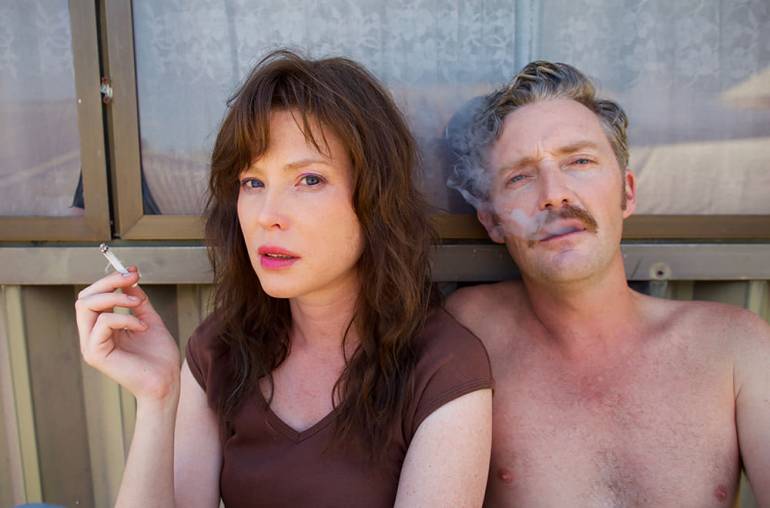Screen Australia supported Ben Young’s debut feature ‘Hounds of Love’, however the agency has had to largely get out of the entry-level film market following successive budget cuts.
Screen Australia’s revelation that it can no longer afford to support entry-level feature filmmakers has been criticised by the Australian Directors’ Guild and some producers, writers and directors.
“We have had to get out of the entry-level film market as a result of funding cuts,” chief operating officer Fiona Cameron told a parliamentary inquiry into the sustainability of the film and TV industry last week. “The state governments typically work in that area and we work in the area over and above that.”
Cameron was quick to point out the agency still supports emerging filmmakers in its online funding programs such as Hot Shots and in documentaries, while CEO Graeme Mason pointed to funding for low-budget features from first-time directors including Ben Young’s Hounds of Love, Nicholas Verso’s Boys in the Trees and Grant Scicluna’s Downriver.
ADG CEO Kingston Anderson acknowledged that successive budget cuts have forced Screen Australia to make some hard decisions but told IF: “There are less and less opportunities in the high-end space, which is developing feature film directors. It should not be a case of ‘either or’ [established filmmakers or tyros]. There should be funding for entry-level filmmakers but where do they (Screen Australia) get the money from? It is robbing Peter to pay Paul.”
Appearing before the inquiry by the Standing Committee on Communications and the Arts, Anderson advocated restoring the agency’s funding by $50 million a year, raising the TV producer offset to 40 per cent and providing adequate funding for the ABC.
Writer-director Matthew Holmes, who made his debut on The Legend of Ben Hall told IF: “They should be supporting the entry-level filmmakers more than established ones. That’s what they are there for because their money is not risk money, it’s government money. The established filmmakers should be backed by investors and studios.”
The low-budget bushranger pic will be released on non-theatrical platforms in the US on August 1 by Vega Baby/Sony Pictures and in Germany by Spirit Media.
Holmes has been developing several projects to which he would like to attach key cast but he says that is virtually impossible without financing. “I certainly have not had any support from Screen Australia on previous or current projects. Only Film Victoria was supportive of my last film,” he said.
Vision Pictures Australia’s Mack Lindon, whose debut film was the 2014 psychological drama Rise said: “Entry-level filmmakers are the future of the Australian film industry. With no support from Screen Australia on my debut film, it has been distributed by Sony in the U.S, Canada and the UK and currently is being translated into Spanish.
“First-time film makers do not be discouraged, there are many roads to Rome. A country that kills its young filmmakers will be overtaken by a country that does not kill theirs. Keep creating.”
Lindon said he may be forced to shoot his next film, futuristic romantic drama Dunamis, in Mexico due to the MEAA’s objections last year to international casting.
Red Rock Pictures’ Gary O’Toole said: “I remember when the government got rid of apprenticeships and five years later there were no more tradies to take the place of those that retired. I know the film industry isn’t the same, except that I think it’s incredibly important to build out talent from the roots up, not just concentrate on the pretty flowers at the top.”
Two years ago O’Toole intended to make his debut film, the serial saga The Lucifer Killings,but put that on hold because it needed a bigger budget than he could raise.
He has since secured representation from Australia’s Auspol Media on that project and Nulla, a supernatural thriller about a British soldier, an Iraq veteran, who sets out to drive from Melbourne to Perth with a buddy, a fellow soldier, where they have an horrific accident.
He is submitting The Lucifer Killings to Screen Australia’s Wildcard Pitch development program designed to help teams that do not meet the eligibility criteria.
Writer-director Heath Davis, whose first film was Broke, said he views Screen Australia’s decision as “more evidence that filmmakers have got to start looking externally, not internally, and truly embrace collaboration. That means everyone helping one another get their projects happening. There’s too much of an every person in it for themselves philosophy here and that needs to change. I love film and am worried about where it’s heading.”
Davis is hoping for Screen Australia support for Book Week, a comedy about a jaded high school English teacher and once successful novelist who is forced to re-evaluate his life when his latest book is passed over for one of his students.


